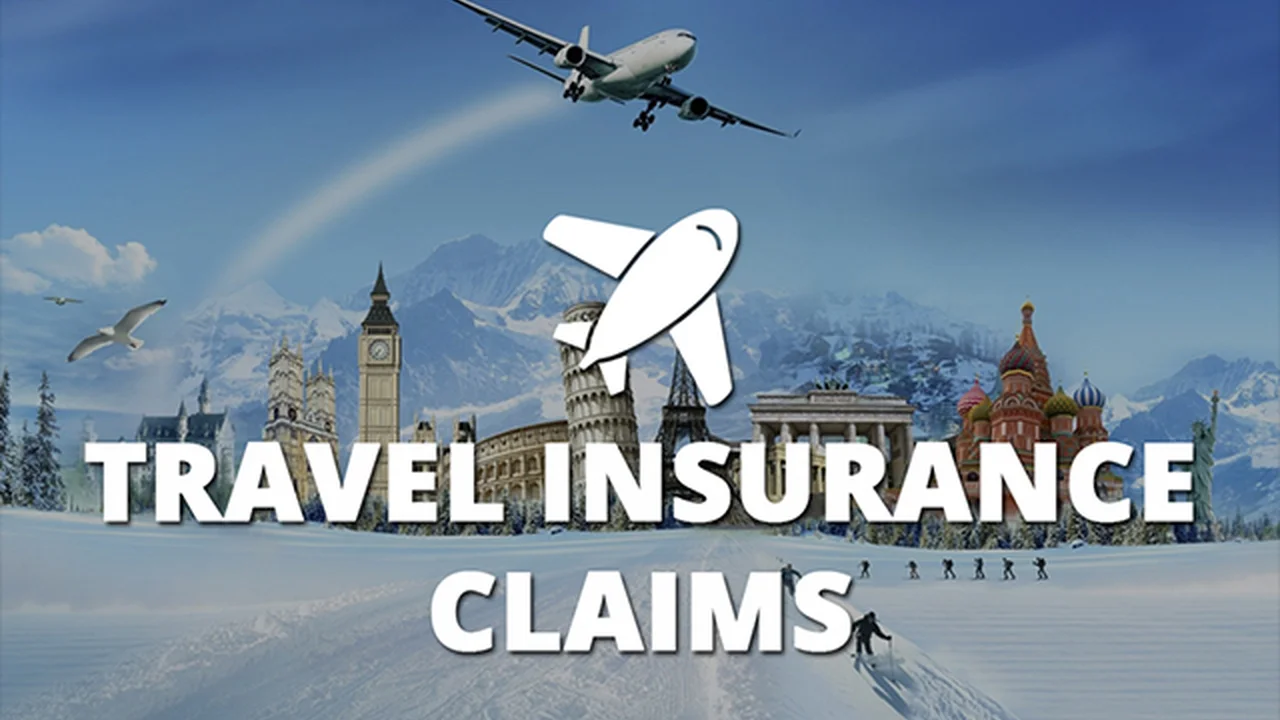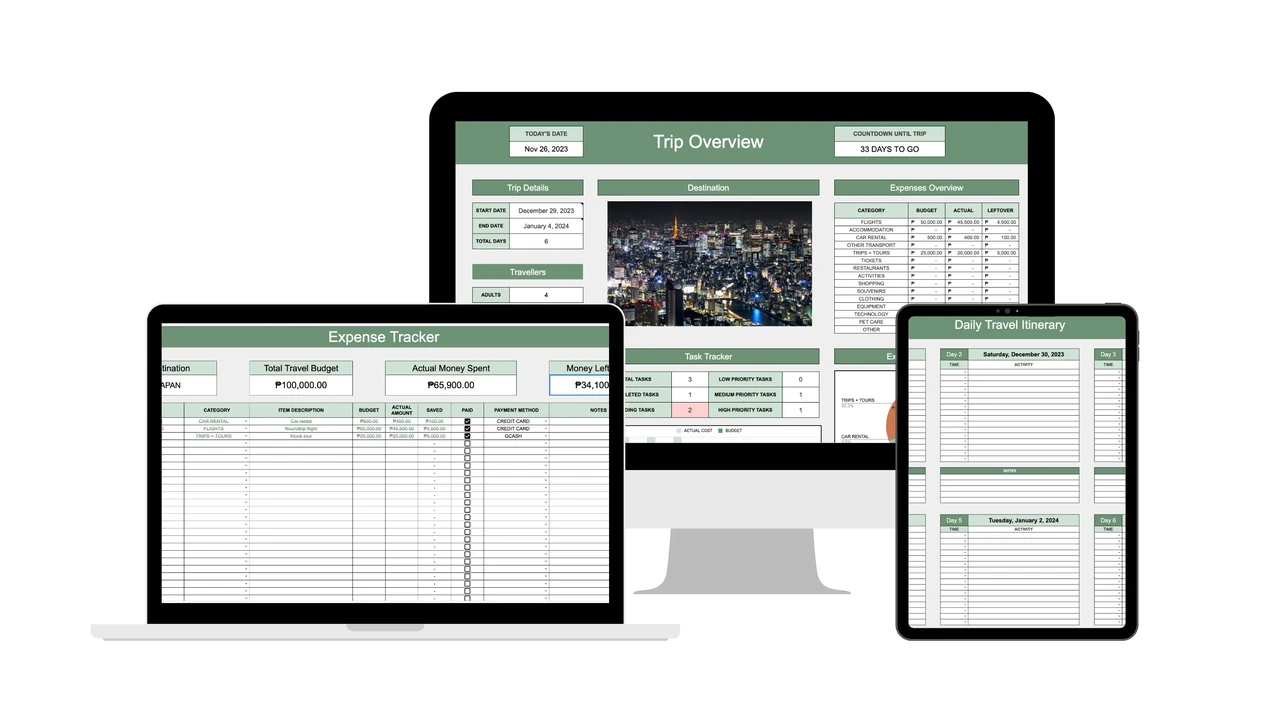7 Common Travel Insurance Myths Debunked

Travel Insurance Myth #1: It's Too Expensive - Affordable Travel Insurance Options
Let's kick things off with a big one. A lot of folks think travel insurance is a luxury they can't afford. But honestly, it's often less expensive than you think, and *way* cheaper than dealing with a medical emergency or lost luggage overseas. Think about it: you're dropping serious cash on flights, accommodation, and experiences. Shouldn't you protect that investment?
The price of travel insurance depends on a few factors: your age, the length of your trip, your destination, and the level of coverage you choose. A healthy 30-year-old going on a week-long vacation to Europe will likely pay significantly less than a 65-year-old with pre-existing conditions taking a month-long cruise.
Product Recommendations:
- World Nomads: Known for its flexibility and coverage for adventure activities. A great choice if you're planning on hiking, scuba diving, or other adventurous pursuits. A basic plan for a week in Europe might cost around $50-$80.
- Allianz Global Assistance: Offers a wide range of plans, from basic trip cancellation to comprehensive medical coverage. Their annual plans are a good option if you travel frequently. A single trip plan could range from $40-$100 depending on coverage.
- Travelex Insurance Services: Another solid option with various plans to suit different needs and budgets. Good for families. Expect to pay $35-$90 for a week-long trip.
Using Travel Insurance: Imagine you're trekking in Nepal and twist your ankle. Without insurance, you're looking at potentially thousands of dollars for evacuation and medical treatment. With World Nomads, you'd likely be covered for these expenses, making a stressful situation much more manageable.
Product Comparison: World Nomads excels in adventure coverage, Allianz in comprehensive medical, and Travelex in family-friendly options. Consider your trip specifics when choosing.
Price Points: Prices vary based on coverage level, trip length, and your personal details. Always get quotes from multiple providers.
Travel Insurance Myth #2: My Credit Card Offers Enough Coverage - Understanding Credit Card Travel Insurance
Many credit cards offer some form of travel insurance as a perk. But before you rely solely on your plastic, read the fine print! Credit card travel insurance often has limitations and exclusions. It might cover things like rental car damage or trip delays, but it might not cover medical emergencies or pre-existing conditions.
Credit Card Coverage Gaps: For example, your credit card might cover trip cancellation due to illness, but only if you're hospitalized. A simple cold that forces you to miss your flight might not be covered. Also, the coverage amounts are often lower than stand-alone travel insurance policies.
Product Recommendations: While not a replacement, here are some credit cards with decent travel insurance benefits:
- Chase Sapphire Preferred/Reserve: Offers trip cancellation/interruption insurance, baggage delay insurance, and car rental collision damage waiver.
- Capital One Venture X Rewards Credit Card: Includes trip cancellation/interruption insurance, lost luggage reimbursement, and travel accident insurance.
- American Express Platinum Card: Provides trip delay insurance, baggage insurance, and car rental loss and damage insurance.
Using Credit Card Insurance: If your flight is delayed by more than 6 hours, your Chase Sapphire card might reimburse you for reasonable expenses like meals and accommodation. But remember to keep all your receipts!
Product Comparison: Credit card insurance is a nice bonus, but it shouldn't be your primary source of protection. Compare it to a comprehensive travel insurance policy to see where the gaps are.
Price Points: Credit card annual fees can range from $95 to $695. Factor this in when considering the value of the travel insurance benefits.
Travel Insurance Myth #3: I'm Young and Healthy, Nothing Will Happen - The Importance of Travel Medical Insurance
This is a classic. "I'm invincible!" While we all hope for smooth sailing, accidents happen, and illnesses can strike anyone, regardless of age or fitness level. Imagine getting food poisoning in a remote village, breaking a bone while skiing, or needing emergency dental work. These things can cost a fortune, especially if you're abroad.
The Risk is Real: Even a seemingly minor injury can become a major problem if you're far from home and don't have access to quality medical care. Travel medical insurance can cover the costs of doctor visits, hospital stays, medication, and even emergency evacuation if necessary.
Product Recommendations:
- IMG Signature Travel Medical Insurance: Comprehensive medical coverage with high limits and access to a global network of providers. Ideal for extended trips. A month's coverage could cost around $100-$200.
- GeoBlue Voyager: Offers excellent coverage for US citizens traveling abroad, with direct billing to many hospitals and doctors. Suitable for both short and long trips. Expect to pay $80-$150 for a week.
- Seven Corners RoundTrip Choice: A good mid-range option with decent medical coverage and trip protection benefits. A week's coverage might be around $60-$120.
Using Travel Medical Insurance: You develop a severe allergic reaction while trying new food in Thailand. GeoBlue can help you locate a reputable hospital and ensure your medical bills are covered, minimizing financial stress during a health crisis.
Product Comparison: IMG offers higher coverage limits, GeoBlue excels in direct billing, and Seven Corners provides a balance of medical and trip protection. Consider your destination and risk tolerance.
Price Points: Travel medical insurance costs depend on your age, health, destination, and coverage level. Shop around for the best deal.
Travel Insurance Myth #4: My Existing Health Insurance Covers Me Abroad - International Health Insurance Considerations
Don't assume your domestic health insurance will cover you when you're traveling internationally. Many policies have limited or no coverage outside of your home country. Even if they do, you might have to pay upfront and then seek reimbursement, which can be a hassle.
The Coverage Gap: Check your health insurance policy carefully. Look for specific language about international coverage, deductible amounts, and claim procedures. You might be surprised to find how little protection you actually have.
Product Recommendations: (These are repeats from above as they also address this need)
- IMG Signature Travel Medical Insurance: Comprehensive medical coverage with high limits and access to a global network of providers. Ideal for extended trips. A month's coverage could cost around $100-$200.
- GeoBlue Voyager: Offers excellent coverage for US citizens traveling abroad, with direct billing to many hospitals and doctors. Suitable for both short and long trips. Expect to pay $80-$150 for a week.
- Seven Corners RoundTrip Choice: A good mid-range option with decent medical coverage and trip protection benefits. A week's coverage might be around $60-$120.
Using International Coverage: If your domestic insurance doesn't cover international medical expenses, having one of these plans can be a lifesaver. Imagine needing urgent surgery in Spain; these policies can cover the costs and provide peace of mind.
Product Comparison: Focus on policies that explicitly offer international coverage and have a strong network of providers in your destination.
Price Points: Consider the cost of international travel insurance relative to the potential cost of uncovered medical expenses abroad.
Travel Insurance Myth #5: I Don't Need Trip Cancellation Insurance - Understanding Trip Cancellation Coverage
Life happens. Flights get canceled, family emergencies arise, and unexpected events can derail your travel plans. Trip cancellation insurance can reimburse you for non-refundable expenses like flights, hotels, and tours if you have to cancel your trip for a covered reason.
Covered Reasons: Covered reasons typically include illness, injury, death of a family member, natural disasters, and job loss. Read the policy carefully to understand what's covered and what's not. "Cancel for any reason" (CFAR) coverage offers more flexibility but is also more expensive.
Product Recommendations:
- Allianz Global Assistance (Again, mentioned earlier, but relevant): Offers comprehensive trip cancellation coverage with options for "cancel for any reason" upgrades.
- Travel Guard: Provides various trip cancellation plans with different coverage levels and add-ons.
- Generali Global Assistance: A solid choice with good customer service and competitive pricing.
Using Trip Cancellation Insurance: Your mother falls ill and you need to cancel your non-refundable trip to Italy. Allianz can reimburse you for your flights and hotel, provided her illness is a covered reason.
Product Comparison: Allianz is known for its CFAR options, Travel Guard for its customizable plans, and Generali for its customer service.
Price Points: Trip cancellation insurance costs depend on the cost of your trip and the level of coverage you choose. CFAR coverage is significantly more expensive.
Travel Insurance Myth #6: Travel Insurance Covers Everything - Understanding Policy Exclusions and Limitations
No travel insurance policy covers absolutely everything. There are always exclusions and limitations. Common exclusions include pre-existing conditions (unless specifically covered), extreme sports, acts of war, and certain types of risky behavior. It's crucial to read the policy wording carefully and understand what's *not* covered.
Common Exclusions: For example, if you injure yourself while participating in an unauthorized bungee jumping activity, your insurance might not cover your medical expenses. Or, if you have a pre-existing heart condition, you might not be covered for related complications unless you purchased a specific rider.
Product Recommendations: When comparing policies, pay close attention to the exclusions section. Ask questions if you're unsure about anything.
- World Nomads (Again): While good for adventure, review their specific exclusions related to extreme sports.
- Allianz: Check their policy for pre-existing condition coverage options.
- Travelex: Review their coverage for specific activities you plan to participate in.
Using the Policy: Before engaging in any activity, double-check that it's covered by your policy. If you're unsure, contact your insurance provider for clarification.
Product Comparison: Each policy will have different exclusions. Compare them based on your specific needs and activities.
Price Points: Consider the potential cost of uncovered events when choosing a policy.
Travel Insurance Myth #7: It's Too Complicated to Understand - Tips for Choosing the Right Travel Insurance Policy
Okay, travel insurance policies *can* be confusing. But they don't have to be! Here are some tips for choosing the right policy for your needs:
- Assess Your Needs: What are your biggest concerns? Medical emergencies? Trip cancellation? Lost luggage? Focus on the coverage that's most important to you.
- Compare Quotes: Get quotes from multiple providers and compare the coverage, exclusions, and price.
- Read the Fine Print: Don't just skim the policy wording. Take the time to understand the details.
- Ask Questions: If you're unsure about anything, contact the insurance provider and ask for clarification.
- Consider Your Destination: Some destinations have higher medical costs or are more prone to natural disasters. Choose a policy that's appropriate for your destination.
- Think About Your Activities: If you're planning on participating in adventure activities, make sure your policy covers them.
Product Recommendations: Use comparison websites like Squaremouth or InsureMyTrip to compare policies side-by-side.
Using Comparison Tools: Input your trip details and personal information to get personalized recommendations.
Product Comparison: These websites allow you to filter policies based on your specific needs and budget.
Price Points: Comparison websites help you find the best value for your money.
Specific Product Recommendations with Detailed Information
World Nomads Explorer Plan: The Adventure Traveler's Choice
Usage Scenario: Ideal for backpacking trips, adventure sports, and extended travel where flexibility is key. Imagine you're hiking the Inca Trail and develop altitude sickness. World Nomads Explorer Plan covers emergency evacuation, medical expenses, and even trip interruption if you need to cut your trip short.
Features:
- Emergency medical coverage up to $100,000
- Trip cancellation/interruption coverage
- Baggage loss/delay coverage
- 24/7 emergency assistance
- Coverage for over 200 adventure activities
Pros: Flexible coverage, excellent for adventure activities, easy to extend your policy online.
Cons: Can be more expensive than other options, pre-existing conditions may not be covered.
Price: A two-week trip to South America could cost around $120-$180 depending on your age and specific activities.
Allianz Global Assistance OneTrip Prime Plan: Comprehensive Coverage for Peace of Mind
Usage Scenario: Best for family vacations, cruises, and trips where you want comprehensive coverage for all eventualities. Picture this: your flight is delayed, your luggage is lost, and you develop a sudden illness. Allianz OneTrip Prime covers all these scenarios, ensuring you're protected against unexpected costs.
Features:
- Trip cancellation/interruption coverage
- Baggage loss/delay coverage
- Emergency medical coverage
- Trip delay coverage
- 24/7 travel assistance
Pros: Comprehensive coverage, strong customer service, options for "cancel for any reason" upgrades.
Cons: Can be more expensive than basic plans, pre-existing conditions may have limitations.
Price: A one-week family vacation to Disney World could cost around $80-$150 depending on the trip cost and coverage level.
Travelex Travel Select Plan: Family-Friendly Protection
Usage Scenario: Suitable for family travel with customizable options to meet specific needs. Imagine you're on a family road trip and your car breaks down. Travelex Travel Select can cover car rental expenses, accommodation, and meals while you wait for repairs.
Features:
- Trip cancellation/interruption coverage
- Baggage loss/delay coverage
- Emergency medical coverage
- 24/7 travel assistance
- Option to add coverage for pre-existing conditions
Pros: Customizable options, good for families, competitive pricing.
Cons: Coverage limits may be lower than other options, customer service can be inconsistent.
Price: A one-week family vacation to the beach could cost around $60-$120 depending on the coverage options you choose.
GeoBlue Voyager Choice Plan: Expatriate and Long-Term Traveler's Medical Solution
Usage Scenario: Designed for U.S. citizens traveling or residing abroad for extended periods. Imagine you're teaching English in South Korea for a year and require routine medical care. GeoBlue Voyager provides access to a global network of doctors and hospitals, ensuring you receive quality medical treatment wherever you are.
Features:
- Comprehensive medical coverage worldwide
- Access to a global network of providers
- Direct billing to many hospitals and doctors
- Emergency medical evacuation coverage
- Prescription coverage
Pros: Excellent medical coverage, direct billing, ideal for long-term travelers.
Cons: Can be more expensive than short-term plans, may not cover pre-existing conditions.
Price: A one-year plan for an expatriate in Europe could cost around $1,000-$2,000 depending on age and coverage level.
Seven Corners RoundTrip Choice Plan: A Balanced Option for Budget-Conscious Travelers
Usage Scenario: A good all-around option for those seeking a balance of medical coverage, trip protection, and affordability. Imagine you're visiting relatives overseas and experience a sudden illness. Seven Corners RoundTrip Choice covers medical expenses, trip interruption, and other unexpected costs, without breaking the bank.
Features:
- Trip cancellation/interruption coverage
- Baggage loss/delay coverage
- Emergency medical coverage
- 24/7 travel assistance
- Competitive pricing
Pros: Affordable, decent coverage, good customer service.
Cons: Coverage limits may be lower than more expensive plans, pre-existing conditions may have limitations.
Price: A one-week trip to Mexico could cost around $50-$100 depending on age and coverage level.
Comparing the Products: A Quick Overview
Here's a table to help you quickly compare the products:
| Product | Best For | Key Features | Price Range (per week) |
|---|---|---|---|
| World Nomads Explorer | Adventure Travel | Adventure Activity Coverage, Flexibility | $60-$90 |
| Allianz OneTrip Prime | Comprehensive Coverage | Trip Cancellation, Medical, Baggage | $80-$150 |
| Travelex Travel Select | Family Travel | Customizable Options, Pre-existing Condition Coverage | $60-$120 |
| GeoBlue Voyager Choice | Long-Term Travel | Global Medical Network, Direct Billing | N/A (Annual Plans) |
| Seven Corners RoundTrip Choice | Budget-Conscious Travelers | Balanced Coverage, Affordable | $50-$100 |
Remember to always read the full policy details and compare quotes before making a decision. Safe travels!
:max_bytes(150000):strip_icc()/277019-baked-pork-chops-with-cream-of-mushroom-soup-DDMFS-beauty-4x3-BG-7505-5762b731cf30447d9cbbbbbf387beafa.jpg)






